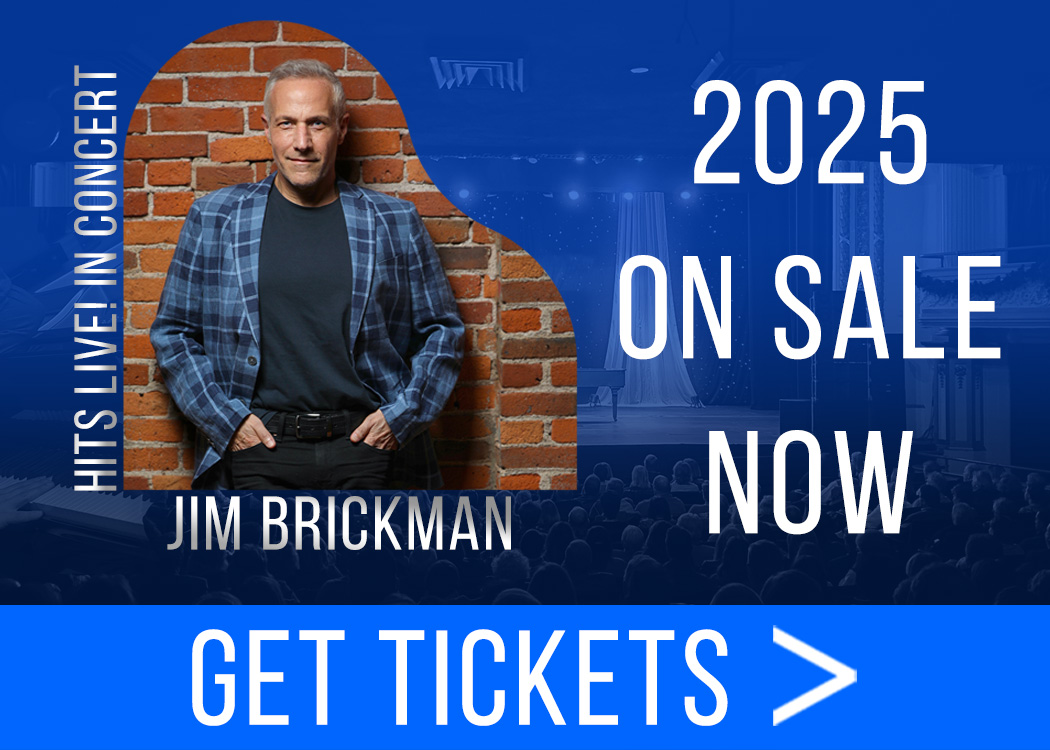
National Geographic Explorer & Author Dan Buettner
Work unfulfilling and stressful? Social media leaving you drained? Feeling lethargic and sad? TIME FOR SOME CHANGES! Dan Buettner, author of The Blue Zones of Happiness, stopped by to tell Jim all about his research towards creating greater happiness
Listen to Part 1 of Jim’s Interview with Dan Buettner here!
Read Jim Brickman’s Interview with Dan Buettner
Jim Brickman – It seems like everyone nowadays is trying to implement some sort of way to get greater happiness in their lives, whether it’s a gratitude journal, practicing mindfulness, well today we are talking to an expert in happiness, National Geographic Explorer Nat Buettner about his book The Blue Zones of Happiness, and some really fascinating stuff, how are you doing Dan?
Dan Buettner – Best day of my life, what else?
Jim Brickman – I’m fascinated by this book- is it true that you actually took fifteen years to compile all the research?
Dan Buettner – Well it was about a ten year process, which has now lead to also a cover story for November’s issue of National Geographic. At National Geographic they do everything top notch, so we manage to bring in the world’s biggest databases to help us identify the statistically happiest parts of the world, and then do the enormous correlational work to find out what really accompanies happiness and we found that most of what we think brings happiness is misguided or just plain wrong, and we try to set the record straight.
JB – And are there happy places in the world? If so, where are they?
DB – So the people who have the highest life satisfaction are the Singaporeans, that type of happiness appeals to people who like a very clear path to success, with kind of a guarantee of financial security at the end and be proud and their friends are impressed.
The second kind of happiness we saw in Denmark, that’s purpose-driven happiness, people’s needs are taken care of by the social security system there, and ambition is not celebrated, so what you have left is a work life where people can really pursue their passions. In America, 70% of us do not like our jobs, but in Denmark almost everybody loves their jobs and they knock off after 37 hours and they spend their time with their friends and their family.
And then in Cartago, Costa Rica, you’ve got the highest level of [people who] experience moment-to-moment happiness, and their people will very rarely forgo a social opportunity to do more work. So they spend time with their family, they tend to be very religious, which makes people happy in religious areas. They get the 5-6 hours of social interaction which dependably delivers greater day-to-day happiness on a daily basis.
JB- Tell us a little bit about the Happiness Power 9 and how it was developed.
DB- So as a part of writing the Blue Zones of Happiness, we recruited 17 of the world’s top happiness experts to create a consensus. We essentially asked those 17 people to suggest the most powerful things we can do to add lasting happiness to our lives, and then we had this very same panel rank them for effectiveness and feasibility. Some of the things that will dependably make you happier for the long run– really carefully curating your social network. You want 4-5 friends you really like, number two, you can have a meaningful conversation with them on a daily basis, and number three, you can call them on a bad day and they’ll care. And that takes effort, and it’s not something you hear about very often, and it’s not something marketers can sell you, but friends have a measurably contagious influence on your life, and every new friend you add to your social network can increase your happiness by about 15%. That’s just one of the nine, and in the book I lay out a pretty clear blueprint of not only what you can do, but how you can do it.
JB- What are the most important things for us to work into our daily lives for us to be as happy as possible?
DB- So sleep more than seven and a half hours, it’ll raise your happiness by over 30% over sleeping six hours, to begin with. You can eat 5-7 servings of vegetables. You can work under 40 hours, you can spend less than an hour on a screen, whether it’s TV or social media, helps. No matter where you go in the world and survey, we find that volunteers are happier than non-volunteers. All these things stack the deck in the favor of happiness.
…and listen to Part 2 below!
Itching to know more secrets to a more fulfilling life? Make sure to check out The Blue Zones of Happiness!
More on Guest Dan Buettner

Dan Buettner is a National Geographic Explorer and the founder of Blue Zones, an organization that helps Americans live longer, healthier lives. His groundbreaking work on longevity led to his 2005 National Geographic cover story “Secrets of Living Longer” and three national best-sellers, The Blue Zones, Thrive,and The Blue Zones Solution. His forthcoming book, The Blue Zones of Happiness will be published by National Geographic in October 2017. He lives in Minneapolis and can be found on Facebook and Twitter and through his website bluezones.com.
More from The Jim Brickman Show
Lawrence
“If this groovy corner of the New York City scene is going to take the world by storm, Lawrence may well be its best bet for the future.” – Live For Live Music
Andrew Reed & The Liberation
“To me, rock wasn’t meant to be pretty, but desperate, risky and bombastic…where it could go off the rails at any moment.” – Andrew Reed
Ava Della Pietra
“Music is such a powerful way to convey my thoughts and ideas; it’s like a journal, a true snapshot of my life.” – Ava Della Pietra





